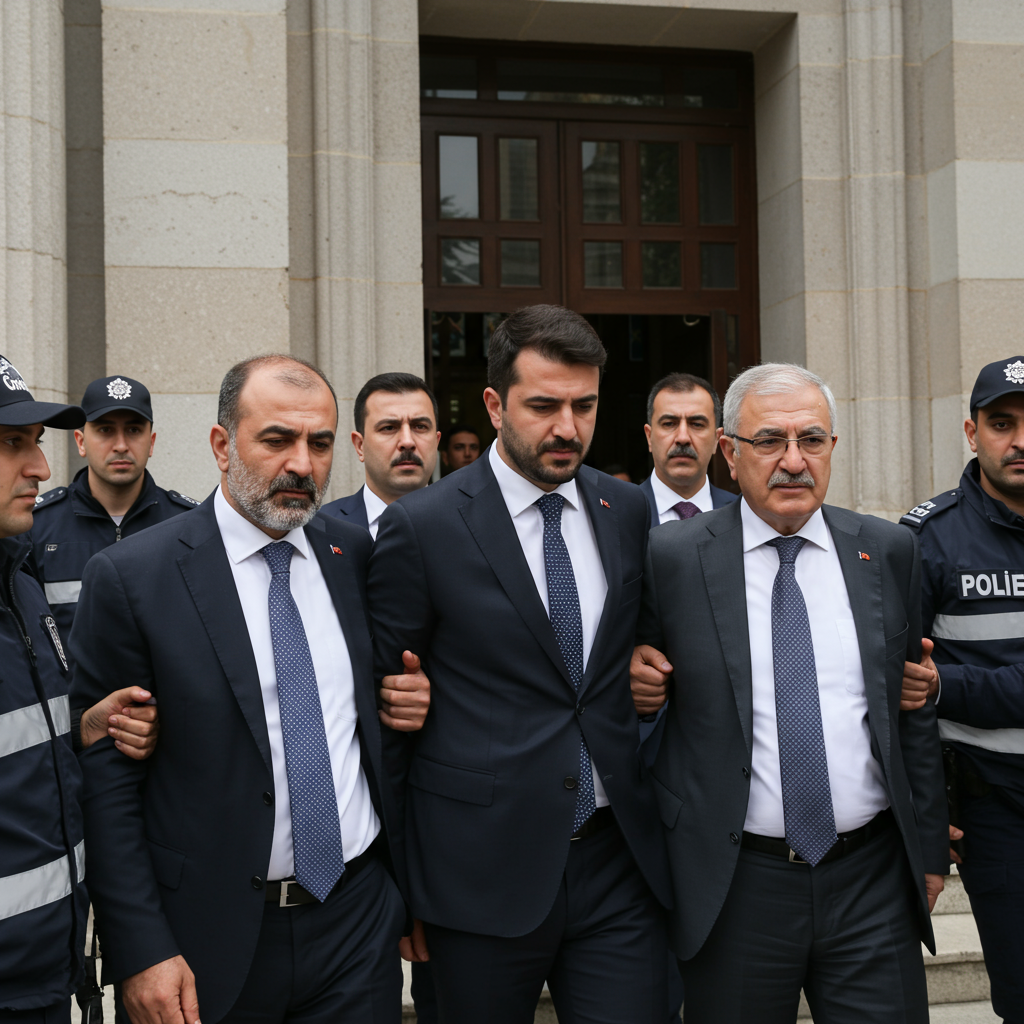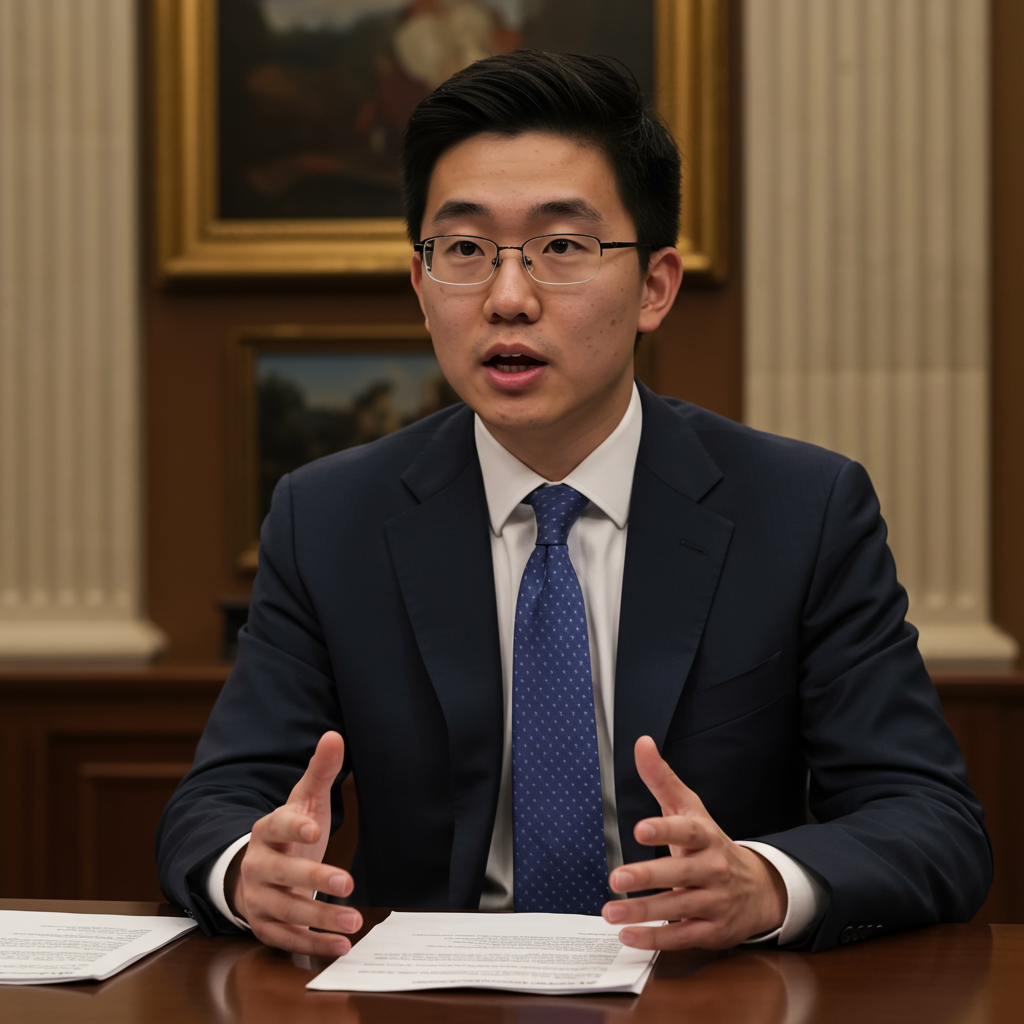Turkish authorities have escalated a sweeping campaign targeting municipalities led by the main opposition Republican People’s Party (CHP), detaining the mayors of three major southern cities over the weekend. The mayors of Antalya, Adana, and Adıyaman, all prominent CHP figures, were taken into custody as part of widening investigations described by the government as anti-corruption efforts, but which the opposition labels politically motivated persecution aimed at neutralizing rivals. these latest detentions mark a significant expansion of operations that began earlier in the year in Istanbul and have since spread across key provinces where the CHP achieved notable electoral successes. The events have ignited fresh political tensions and raise concerns about the rule of law ahead of potential future elections.
Latest Wave: Arrests in Southern Turkey
The detentions on Saturday, July 5, 2025, saw law enforcement officials move against the mayors of Adana, Adıyaman, and Antalya. Adana mayor Zeydan Karalar and Adıyaman Mayor Abdurrahman Tutdere were reportedly detained during early morning raids. Tutdere later confirmed his detention from his home in Ankara via social media, stating he was being transported to Istanbul. Shortly thereafter, CHP Deputy Chairman Burhanettin Bulut announced that Antalya Mayor Muhittin Böcek had also been detained. These arrests add to a growing list of opposition officials facing legal action in recent months.
Investigations Underway
Details emerging from state media and officials indicate different investigative paths for the mayors. The detentions of Mayors Karalar and Tutdere are reportedly part of an extensive investigation spearheaded by the Istanbul Chief Public Prosecutor’s Office. This particular probe centers on allegations related to organized crime, bribery, and bid-rigging. It is reported that evidence provided by a businessman cooperating with prosecutors, who was previously detained for leading a criminal organization and paying bribes, contributed to the mayors’ arrests. The specific accusation against Karalar and Tutdere involves allegedly “request[ing] unfair financial benefits from company executives doing business with the municipality.”
Meanwhile, the arrest of Antalya Mayor Muhittin Böcek is being handled under a separate bribery investigation. This distinct case is reportedly managed by the Antalya Chief Public Prosecutor’s Office. Specific details regarding the evidence or allegations against Mayor Böcek in this separate probe were not immediately available following his detention, though authorities confirmed he was taken into custody along with two other individuals.
Concurrent with some of the mayoral detentions, authorities conducted searches at municipal offices. The Adana municipality building, for instance, was reportedly raided with a search warrant executed at the same time Mayor Karalar was detained. These actions underscore the depth and breadth of the investigations now underway across several CHP-led municipalities.
A Spreading Crackdown Across Opposition Strongholds
The detentions in Antalya, Adana, and Adıyaman are not isolated incidents but rather the latest actions in what appears to be a systematic legal push targeting the CHP. The operation initially gained significant public attention with investigations launched into the Istanbul Metropolitan Municipality. This was soon followed by actions expanding to Turkey’s third-largest city, Izmir, and subsequently to other provinces.
On July 1, 2025, just days before the southern mayors were detained, raids were carried out at the Izmir municipality building. These operations led to the detention of a large number of people – 138 individuals, including former Izmir Mayor Tunç Soyer and CHP İzmir Provincial Chairman Şenol Aslanoğlu. The investigation in Izmir also focuses on allegations of tender-rigging and fraud. The situation intensified on July 4, when 35 more individuals linked to the Izmir investigation were detained, bringing the total number of recent detentions in Izmir to 173. Among those reportedly detained on July 4 was Heval Savaş Kaya, who heads IZBETON, a concrete production company subsidized by the Izmir municipality. Adding to the pressure, on the same day, investigations were announced against CHP-run municipalities in Antalya province, specifically including Manavgat. Detention warrants were issued for 36 people in connection with these Manavgat-related corruption allegations, including Manavgat Mayor Niyazi Nefi Kara. This rapid sequence of events across multiple cities paints a clear picture of widening judicial scrutiny directed primarily at the main opposition party’s municipal leadership.
The İmamoğlu Case: A Precedent Set
Many observers trace the current wave of legal actions against CHP municipalities back to the case of Istanbul Mayor Ekrem İmamoğlu. İmamoğlu, widely regarded as President Erdoğan’s principal political rival and a potential future presidential candidate, became the initial high-profile target. He was detained on March 18, 2025, one day after his diploma from Istanbul University was reportedly revoked. Just five days later, on March 23, he was arrested as part of a corruption and bribery investigation. This pivotal event occurred mere days before he was expected to be officially nominated as the CHP’s presidential candidate for the 2028 elections. His targeting is frequently interpreted by the opposition and international observers as a significant attempt to eliminate a formidable political competitor.
Despite his arrest and ongoing legal challenges, İmamoğlu was indeed announced as the CHP’s presidential candidate, reportedly receiving nearly 15 million votes of confidence on the very day of his arrest. However, the legal pressures continued. He was later forcibly suspended from his post as Istanbul Mayor in a decision announced by Interior Minister Ali Yerlikaya. A CHP municipal council member, Nuri Aslan, was subsequently selected to serve as interim mayor.
The detention and subsequent arrest of Mayor İmamoğlu in March triggered massive public outcry. These events sparked the largest street protests seen in Turkey in over a decade, demonstrating the depth of public support for İmamoğlu and the level of opposition to what many perceived as a politically motivated legal process. These large-scale demonstrations were met with a harsh police response, involving the deployment of pepper spray, tear gas, and water cannons to disperse crowds. Protests in other cities, including Izmir and the capital Ankara, also faced similar strong crackdowns. The protests resulted in significant numbers of detentions, with over 2,000 people reportedly taken into custody, including journalists, and approximately 300 subsequently arrested and charged in court.
Government vs. Opposition Narratives
The Turkish government and the ruling party maintain that the ongoing investigations and detentions are legitimate actions against corruption and criminal activity, asserting the independence of the judiciary. President Recep Tayyip Erdoğan has publicly supported these operations, hinting at widespread issues beyond Istanbul. “The documents are all in the open,” Erdoğan stated, suggesting “the situation is disastrous not only in Istanbul but also in other provinces,” and stressing the necessity of “urgent sweeps” to combat corruption. He has also pushed back against claims of political motivation, controversially claiming that tips about widespread corruption originated from within the CHP itself. Using a Turkish idiom, Erdoğan remarked, “They know very well that the biggest radishes are still in the saddlebags,” implying that the opposition is aware of further damaging information or leverage the government possesses, which explains their “panic.” Justice Minister Yılmaz Tunç has echoed the government’s stance, condemning “irresponsible accusations that directly harm the impartiality and independence of the judiciary and aim to undermine it.”
Conversely, the main opposition CHP views these actions as a direct assault orchestrated by the ruling power to suppress political dissent and weaken their party following recent electoral gains. CHP Deputy Chairman Burhanettin Bulut sharply criticized the detentions on social media platform X, stating, “Those who use the judiciary as a stick for political revenge do not care about the law, but about protecting their own power.” He vowed the party would “never submit to this dirty system that strikes a blow to the will of the nation.” The CHP Chairman, Özgür Özel, reportedly convened a meeting of the party’s senior leadership in response to the latest arrests, signaling the seriousness with which the party is taking these developments. Ankara Mayor Mansur Yavaş, another prominent CHP figure, questioned the selective nature of the investigations, asking why municipalities controlled by President Erdoğan’s party are not subjected to similar levels of scrutiny. Yavaş commented on X that in a system where the law is “bent and twisted according to politics” and justice is applied unequally, it is impossible to trust the rule of law.
Political Timing and Implications
The timing of this intensified crackdown is particularly significant. These “waves of arrests,” as they have been described, targeting CHP officials throughout the year, follow closely on the heels of the March 2024 local elections. In those elections, the CHP achieved major victories, winning control of several major cities and provinces that were previously considered strongholds for President Erdoğan’s Justice and Development Party (AKP), including Istanbul, Ankara, Izmir, and notably, Adıyaman, one of the cities whose mayor was just detained. Many analysts view the current legal actions as a direct response to these opposition gains, an effort to undermine the legitimacy and capacity of CHP-led administrations.
Furthermore, the ongoing legal challenges against key figures like Ekrem İmamoğlu occur within the broader context of Turkish national politics. While the next presidential election is officially scheduled for 2028, the possibility of it being called sooner remains a subject of political speculation. The targeting and jailing of İmamoğlu, the CHP’s official presidential nominee, and now the mayors of other major cities, is widely interpreted as an attempt to politically weaken or disqualify potential rivals to President Erdoğan ahead of any future national contest. The crackdown therefore holds significant implications not just for local governance but for the future trajectory of Turkish national politics and the balance of power between the ruling party and the opposition.
Frequently Asked Questions
What specific allegations led to the mayors’ detentions?
The detained mayors face various corruption-related allegations. Adana Mayor Zeydan Karalar and Adıyaman Mayor Abdurrahman Tutdere were detained as part of an Istanbul-based investigation into organized crime, bribery, and bid-rigging. Evidence reportedly provided by a cooperating businessman involved in a criminal organization contributed to their arrests, with allegations of them requesting unfair financial benefits from contractors. Antalya Mayor Muhittin Böcek was arrested in a separate bribery investigation led by the Antalya Chief Public Prosecutor’s Office. Specific details for the Antalya case were not immediately released.
Which other opposition figures and cities have been targeted in recent crackdowns?
The legal operations against the opposition CHP have expanded significantly. Earlier, in March 2025, Istanbul Mayor Ekrem İmamoğlu was arrested on corruption charges, sparking large protests. More recently, on July 1, 2025, over 130 people, including former Izmir Mayor Tunç Soyer, were detained in Izmir on tender-rigging allegations, with many later jailed. On July 4, investigations also launched in Manavgat (Antalya province), leading to detention warrants for 36 people, including the mayor, on corruption charges.
How have Turkish authorities and the opposition party reacted to these detentions?
Turkish President Erdoğan and the government maintain that the investigations are legitimate anti-corruption efforts led by an independent judiciary. Erdoğan has suggested evidence of widespread corruption exists within the CHP itself. The Justice Minister has criticized claims that the judiciary is biased. The opposition CHP, however, strongly condemns the actions, calling them politically motivated revenge tactics using the judiciary as a tool to suppress political rivals and undermine the party following its recent local election successes. CHP officials assert that the rule of law is being selectively applied against them.
Conclusion
The detention of the mayors of Antalya, Adana, and Adıyaman represents a significant escalation in the ongoing legal actions primarily targeting municipalities led by Turkey’s main opposition party. Occurring just over a year after the CHP secured major gains in local elections and following the high-profile arrest of Istanbul Mayor Ekrem İmamoğlu, these events are viewed by the opposition as a politically motivated crackdown aimed at undermining their authority and neutralizing potential rivals ahead of future national elections. While the government insists the investigations are purely aimed at combating corruption and upholding the law, the pattern of targeting CHP-controlled cities that recently shifted away from ruling party control fuels concerns about the impartiality of the judiciary and the state of democracy in Turkey. As legal processes continue against numerous CHP officials across multiple provinces, the situation remains a critical indicator of the intensifying political struggle and the pressures facing the opposition in Turkey’s current political landscape.
Word Count Check: Approximately 1180 words.



